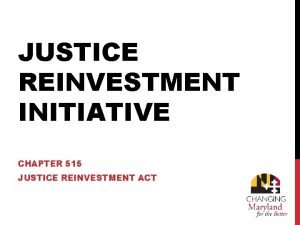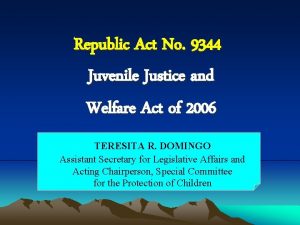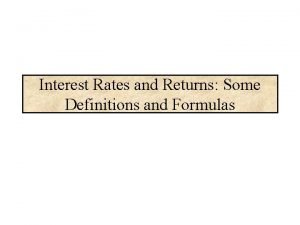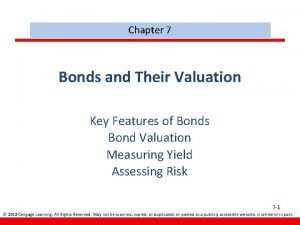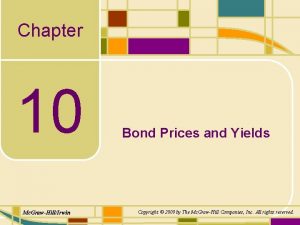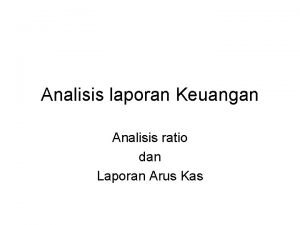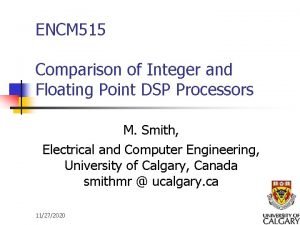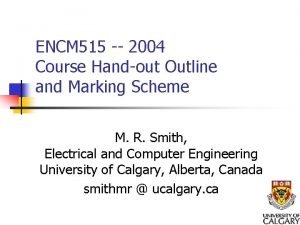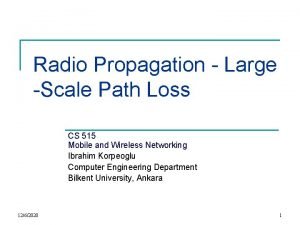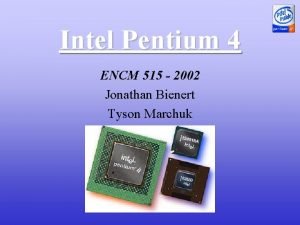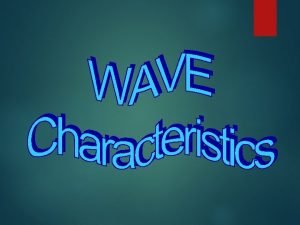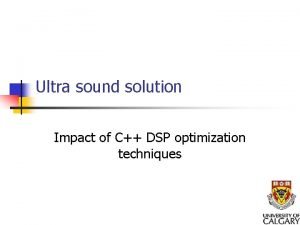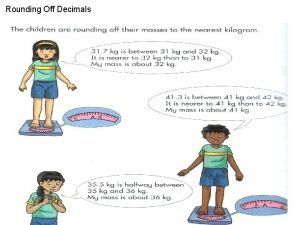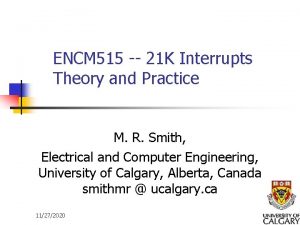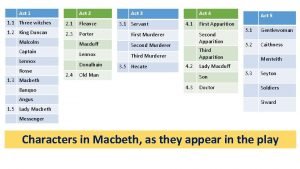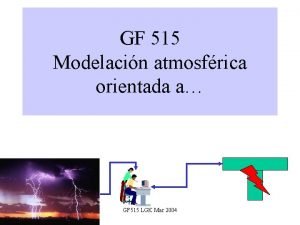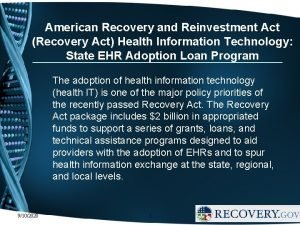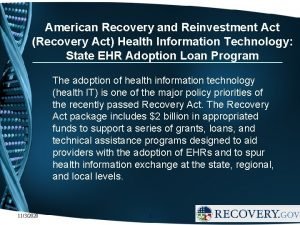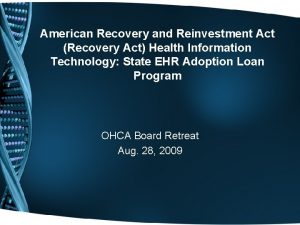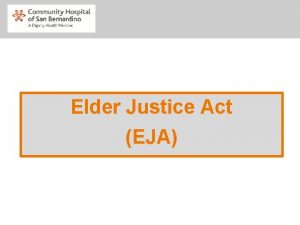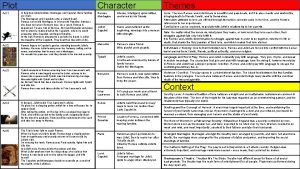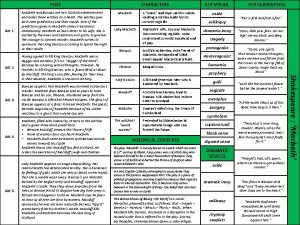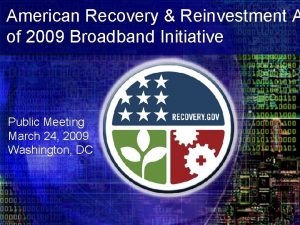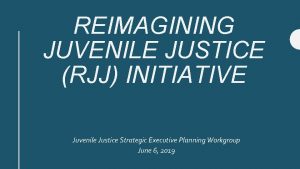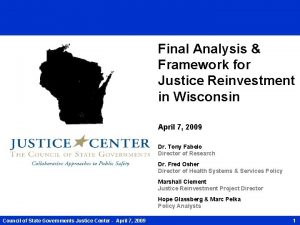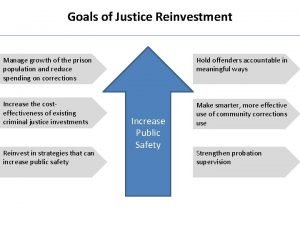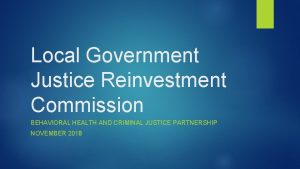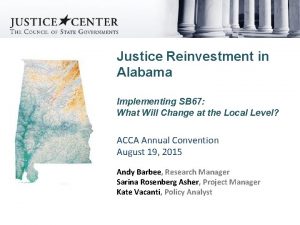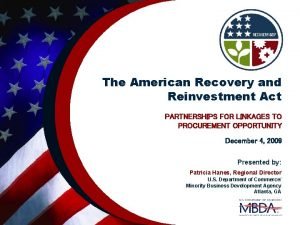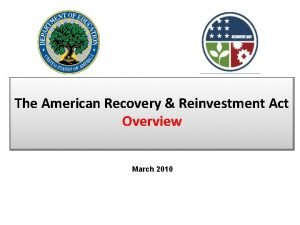JUSTICE REINVESTMENT INITIATIVE CHAPTER 515 JUSTICE REINVESTMENT ACT


























- Slides: 26

JUSTICE REINVESTMENT INITIATIVE CHAPTER 515 JUSTICE REINVESTMENT ACT

THE HEADLINES land y r a M l erhau v o o t l l ns bi stem g y i s s e n c a i t Hog l jus Maryland c crimina rim the right dir inal justice reform: a step in ection Justice Reinvestment Act: Measuring once and cutting twice How Mary land came to r mandatory minimums epeal for drug offenders ct A t en ction m t s nve ht dire i e e R the rig c i t Jus ng in di hea

WHAT IS THE JUSTICE REINVESTMENT INITIATIVE? Justice Reinvestment Initiative (JRI) is a datadriven approach to: • Improve public safety by reducing recidivism • Use criminal justice resources more effectively • Reinvest in programs, services, and treatment proven to reduce likelihood of reoffense and improve offender outcomes.

NATIONAL LANDSCAPE 2010 – US Department of Justice Bureau of Justice Assistance launches JRI with funding from Congress. Nearly 30 States have participated in JRI Nationally the crime rate has decreased over the past decade for both JRI and non-JRI states 20 -Year Comparison New York (JRI) Florida (non-JRI)

HOW DO WE REFORM OUR CRIMINAL JUSTICE SYSTEM IN MARYLAND? JRI JRCC

JUSTICE REINVESTMENT COORDINATING COUNCIL JRCC Key Findings • Prison admissions are down 19% over the last decade, driven by 43% decline in admissions from Baltimore City • Crime rates down approximately 30% in Maryland over the last decade • 58% of prison admissions were sentenced for nonviolent crimes – Statewide decline in drug offenders sentenced to prison over the last decade – Possession with intent to distribute is still the #1 crime for which offenders are sentenced to prison, and possession is still in the top 10 crimes at admission – Burglary admissions have grown 14% in the last decade – Average sentence length for nonviolent offenses varies widely by court circuit • Average sentence length for newly sentenced prisoners has risen 25% over last decade, with growth across all offense types Prison Admissions • 58% of prison admissions were on supervision before entering prison • Over the last decade, probation revocations were down significantly in Baltimore City but up in the rest of the state, including most other large counties. Most revocations are for technical violations (i. e. , for reasons other than new crimes) – Average sentence length for revoked probationers rose 29% in the last decade, across all offense types and most large jurisdictions

JRCC FINDINGS Source: The Pew Charitable Trusts

JRCC FINDINGS Source: The Pew Charitable Trusts

JRCC FINDINGS Source: The Pew Charitable Trusts

JRCC REPORT The Justice Reinvestment Coordinating Council made 19 recommendations that were submitted to Governor Hogan and the Maryland General Assembly. 1. Revise drug possession penalties to maximize recidivism reduction 10. Use swift, certain, and proportional sanctions for violations of probation and parole 2. Require prompt placement in residential drug treatment beds 11. Establish evidence-based standards for supervision practices 3. Eliminate disparity between crack and powder cocaine penalties 12. Strengthen the earned compliance credits program 4. Raise the felony theft threshold and concentrate longer prison terms on higher-level theft offenders 13. Streamline parole and focus parole hearings on serious, violent offenders and on noncompliant nonviolent offenders 5. Expand in-prison good behavior and program incentive credits 6. Retroactive application of the mandatory minimum safety valve 7. Expand alternatives to incarceration in the sentencing guidelines and include suspended sentences in calculating guideline compliance 8. Identify best practices in alternative dispute resolutions 9. Use a validated risk and needs assessment tool to determine supervision levels 14. Expand eligibility for geriatric parole 15. Expand the use of medical parole 16. Establish a certificate of completion for offenders who successfully complete supervision 17. Make certain first-time, minor traffic offenses non-jailable 18. Establish a performance-incentive county grant program 19. Establish an oversight council and track performance

MARYLAND THE JUSTICE REINVESTMENT INITIATIVE In furtherance of the nationwide Justice Reinvestment Initiative, Maryland passed the Justice Reinvestment Act (JRA) Chapter 515 of 2016. The Justice Reinvestment Act represents the most comprehensive criminal justice reform to pass in a generation. Major Provisions of the JRA • Focuses prison beds on serious, repeat offenders • Emphasizes treatment for those struggling with addiction • Elevates the voices of victims of crime • Strengthens community supervision • Expands opportunity for ex-offenders • Establishes oversight mechanisms to ensure reforms are followed The provisions of the Act involving crimes, corrections, and the courts are effective October 1, 2017.

Diversion Deflection Re-Entry JRA Restorative Justice Rehabilitation

REINVESTMENT PRIORITIES AND KEY PARTNERS Treatment A performance incentive grant program Restitution collection for victims of crime Re-entry Beds for medical parolees Training for criminal justice decision makers

JRA IN ACTION JRA – Boards and Local Commission (1) Justice Reinvestment Oversight Board • 25 -member board • includes two members representing local correctional facilities • Performance Incentive Grant Fund (2) Advisory Board to the Justice Reinvestment Oversight Board • 12 -member board • Created for the purpose of including stakeholders in the criminal justice system in the analysis of the implementation of justice reinvestment initiatives • Provides advice to the Oversight Board (3) Local Government Justice Reinvestment Commission • 24 -member board consisting of one individual from each county • (A) advises the Oversight Board on various matters; (B) make recommendations regarding grants to local governments; and (C) create performance measures to assess the effectiveness of the grants

JRA IN ACTION

JRA IN ACTION

JRA IN ACTION

JRA IN ACTION The Governor's Office of Crime Control is working to develop a comprehensive list of performance measures which will be used to measure the impact of various JRA reforms and policies. Measures will be requested from the following agencies: • Department of Public Safety & Correctional Services • Administrative Office of the Courts • Department of Health & Mental Hygiene • Maryland State Commission on Criminal Sentencing Policy • Department of Budget and Management • Local detention centers Various data sets will be requested to capture the various JRA performance measures , including but not limited to: • Department of Corrections snapshots including intakes and releases • Parole and probation snapshots • Parole releases • Recidivism data • Criminal Justice Information System (CJIS) extracts • Restitution requests, payments, and collections • 8 -505 hearings and 8 -507 placements • Local detention center snapshots including intakes, releases, and pretrial inmates

JRA LOOKING AHEAD Victims Coordinate with various agencies to study the current restitution process to determine how to better collect restitution 5% of the grants provided through the Performance Incentive Grant Fund go to victims’ programs All inmates ordered to pay restitution to the victim will have 25 percent withheld of any inmate earnings for restitution

JRA LOOKING AHEAD Public Safety Eliminates mandatory minimum sentences for controlled dangerous substance felonies; MAINTAINS mandatory minimums for violent offenders, volume dealers, drug kingpins, and firearms-related offenses Maximum sentence for second degree murder increased from 30 to 40 years Maximum sentence for child abuse that results in death increased to life sentence Lowers age for geriatric parole eligibility from 65 years old to 60 after individual has served 15 years; makes previously eligible sex offenders ineligible Incentivizes evidence-based programming by expanding in-prison good time behavior and program credits

JRA LOOKING AHEAD Pre Release / Post Release Develop a case plan to guide an inmate’s rehabilitation while under the custody of the Division. An individual may file a petition of expungement of their record if the person is convicted of certain misdemeanor offenses and it has been 10 years since the individual has satisfied the sentence Expanding eligibility for certain earned compliance credits Revocation caps for technical violations (i. e. , violations not involving new crimes, stay away orders, or absconding) of parole and probation: 1 st offense – up to 15 days; 2 nd – up to 30 days; 3 rd – up to 45 days; 4 th and subsequent – discretion up to the remainder of the sentence. Public safety exception allows discretion to impose a longer period Creates certificate of completion for first time, nonviolent, non-sex offenders who successfully complete supervision Promote the State’s policy of encouraging employment of workers with a criminal record by removing barriers for applicants seeking to demonstrate fitness for occupational licenses.

JRA LOOKING AHEAD

JRA – PERFORMANCE INCENTIVE GRANT FUND Annually the JRI Oversight Board determines savings based on reduction in prison population from the prior year. If a State prison or part of a State prison closes, the Oversight Board must determine the savings from the closure. Division of savings • 50% to Performance Incentive Grant Fund • 50% to additional services as identified in JRCC Report JRI Oversight Board administers the Performance Incentive Grant Fund, with the Executive Director of the Governor’s Office of Crime Control and Prevention being the final arbiter on awards. At least 5% of a grant to a county must go toward protecting and enhancing victims’ rights.

JRA IMPACT AND SAVINGS Maryland Projected Prison Population, FY 17 - FY 26 24, 000 21, 530 22, 000 20, 000 20, 336 18, 000 16, 000 14, 000 12, 000 10, 000 FY 17 FY 18 FY 19 FY 20 FY 21 Baseline Prison Population FY 22 FY 23 FY 24 Prison Population with Final Bill Source: Pew Charitable Trusts 10 -Year Savings - $80. 5 million in savings/averted costs, and $45 million in realized savings FY 25 FY 26

JRA REPORTS The following reports are available on the Governor’s Office of Crime Control & Prevention’s website: Final Report of the Collateral Consequences Workgroup - Dec. 1, 2016 Report on Organized Retail Theft – December 1, 2016 Report on Restitution Study – December 1, 2016 Budgetary Requirements on Location Detention Centers – December 31, 2016 Substance Use and Mental Health Disorder Gaps and Needs Analysis – December 31, 2016 Justice Reinvestment Oversight Board Initial Report – January 1, 2017

Questions?
 Justice reinvestment act maryland
Justice reinvestment act maryland Social work reinvestment act
Social work reinvestment act The juvenile justice and welfare act of 2006
The juvenile justice and welfare act of 2006 What is reinvestment risk
What is reinvestment risk Growth through reinvestment
Growth through reinvestment Key features of bonds
Key features of bonds Bond price formula
Bond price formula Cash reinvestment ratio adalah
Cash reinvestment ratio adalah Growth through reinvestment
Growth through reinvestment Profitability index
Profitability index 515 sda hymnal
515 sda hymnal Encm 515
Encm 515 Encm 515
Encm 515 Encm 515
Encm 515 Cis 515 upenn
Cis 515 upenn Ieee 515
Ieee 515 515
515 Mit 515
Mit 515 Amir.netedu
Amir.netedu Encm 515
Encm 515 Encm 515
Encm 515 A sound wave produced by a clock chime is heard 515
A sound wave produced by a clock chime is heard 515 Encm 515
Encm 515 764 to the nearest hundred
764 to the nearest hundred Encm 515
Encm 515 Cisco pix 515 firewall
Cisco pix 515 firewall Macbeth act 2 summary
Macbeth act 2 summary
